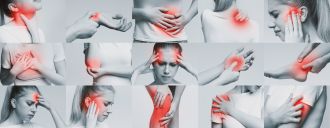-
Taking back control - Economists warn of side-effects of raising the retirement age
The Economic Journal
Leaving paid work opens the door to potentially the best stage of life, and a new study confirms the health and wellbeing benefits which can stem from retirement via an individual’s increased ‘locus of control,’ a psychological trait Read more about Taking back control - Economists warn of side-effects of raising the retirement age
Australia; International; SAFlinders University -
Alternative tidal wetlands in plain sight overlooked Blue Carbon superstars
BioScience
In a new study, scientists from Australia, Indonesia, Singapore, South Africa, Vietnam, the US and Mexico have highlighted the increasing opportunities for Blue Carbon projects for the conservation, restoration and improved management of highly Read more about Alternative tidal wetlands in plain sight overlooked Blue Carbon superstars
Australia; International; QLDGriffith University -
‘Climate rollercoaster’: strong weather fluctuations rocked Australia in 2023
2023 was a “year of opposites” for Australia’s environment, but despite conditions fluctuating between wet and dry, overall conditions remain stable following a bumper year in 2022, according to the latest Australia’s Environment Report, led Read more about ‘Climate rollercoaster’: strong weather fluctuations rocked Australia in 2023
Australia; NSW; VIC; QLD; SA; WA; TAS; NT; ACTThe Australian National University -
Hope for autoinflammatory disease treatment
Science Signalling
University of Queensland researchers have discovered how the ‘on-switch’ for the body’s inflammation machinery can get stuck, causing rare genetic inflammatory diseases. In these diseases, there are genetic mutations that stick the Read more about Hope for autoinflammatory disease treatment
Australia; International; QLDThe University of Queensland|Institute for Molecular Bioscience -
Being poorer might age our brains faster
JNeurosci
Swiss and German researchers say they found a link between having a lower household income and the speed at which the white matter in our brains declines. White matter is important for our cognition as it relays information between different regions Read more about Being poorer might age our brains faster
InternationalGeneva University Hospitals, Switzerland -
Why do cancer patients lose weight?
Nature Metabolism
About 20% of cancer deaths can be attributed to weight loss caused by the disease, and international researchers believe they have discovered a way cancer-related weight loss happens. The researchers screened the levels of metabolites - substances Read more about Why do cancer patients lose weight?
InternationalPeking University, China -
Animal activity changed in unexpected ways during lockdown
Nature Ecology and Evolution
Using data from global wildlife camera traps, researchers have outlined how various types of mammals took advantage of the "anthropause": the sudden decrease in human activity during the pandemic. Despite the popular meme that "nature is healing", Read more about Animal activity changed in unexpected ways during lockdown
InternationalUniversity of British Columbia, Canada -
Which anti-seizure medications are safest to take while pregnant?
JAMA Neurology
Some common anti-seizure medications are much safer to take while pregnant, according to Australian and international research. Many women with epilepsy need to continue taking anti-seizure medications while pregnant, despite these medications Read more about Which anti-seizure medications are safest to take while pregnant?
Australia; International; VICThe University of Melbourne|Monash University -
Mystery of 'Havana syndrome' continues as no clear clinical issues found
JAMA
Assessments of 86 US government staff and family members who developed mysterious symptoms after serving overseas, something often called “Havana syndrome”, have failed to find significant clinical differences between people with this syndrome Read more about Mystery of 'Havana syndrome' continues as no clear clinical issues found
InternationalNational Institutes of Health, USA -
Sustainable solution for wastewater polluted by dyes (and it's 'golden')
Solar RRR
Water pollution from dyes used in textile, food, cosmetic and other manufacturing is a major ecological concern with industry and scientists seeking biocompatible and more sustainable alternatives to protect the environment. A new study led by Read more about Sustainable solution for wastewater polluted by dyes (and it's 'golden')
Australia; International; QLD; SAFlinders University|Griffith University










































